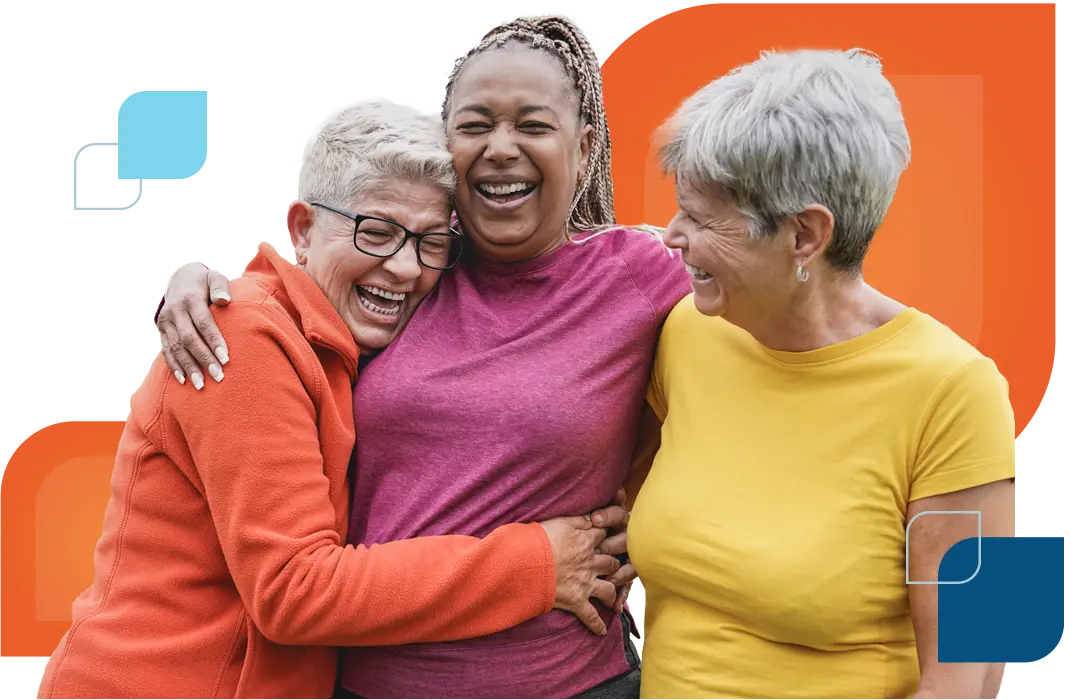Mental Health Training for Older Adults
Older adults may be grieving, dealing with poor health or feeling isolated in their later years. Help them feel less alone with training that addresses the challenges they face.
Find Training Train a Group
How Mental Health First Aid Helps
With over 20% of the population now over age 65, it’s more important than ever to support their mental wellbeing. Our evidence-based training helps you start the conversation.

Strengthen Your Bond
Learn what seniors are going through so you can respond with care and understanding.
Communicate With Care
Gain skills to talk about mental health in a way that feels safe and supportive.
Reduce Stigma
Help normalize seeking mental health care and guide older adults toward support.

Increase Mental Health Literacy
23% of adults (27.6 million) aged 50 or older have had a mental health condition or a substance use disorder in the past year. Learn the signs and how to find resources.
Step in With an Effective Plan
Older adults are at a higher risk of overdose and suicide than younger adults. Know what to do with our proven MHFA Action Plan (ALGEE).

Encourage Self-care
Many older adults experience ageism and feel a lack of purpose. Learn practical ways to build confidence and hope.
Who Should Take MHFA?
- Family members
- Caregivers and volunteers
- Health care professionals, nursing home workers and health aids
- Older adults who want to support themselves and their friends
What You Learn
In this full-day training, you’ll learn what mental illnesses affect older adults and how to address them. The training covers depression, suicide, addiction and more. It also connects these topics to other issues like cognitive impairment and grief. You’ll be able to:
- Understand the impact of mental health and substance use challenges on older adults.
- Know the risk and protective factors for this group.
- Explain and use the MHFA Action Plan (ALGEE) in scenarios about older adults.
- Address stigma and explain that recovery is possible.
- Ensure safety and privacy during conversations.
- Encourage self-care and use of national, regional and community mental health resources for older adults and their caregivers.
Ruth Kaluski
Director of Career Connection, Employment Resource Institute at the Mental Health Association in New Jersey
“People who completed the older adult training found it extremely valuable. That’s helped us build a case for the need to increase mental health literacy and reduce stigma in New
